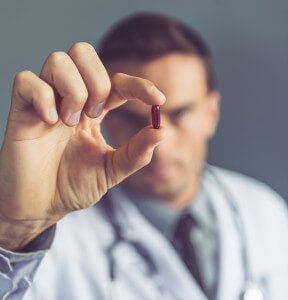
You’ve been there — a late wake-up, rushing out the door, needing to put anything in your stomach to start the day. And the only thing available to eat that doesn’t require a plate or utensils is… Pizza. And so pizza is what you eat for breakfast.
Contrary to many opinions, that cold leftover slice isn’t really awful for you. As for your teeth, a good brushing is all that’s required to erase the evidence in your mouth… though it won’t help with your dietary guilt. And that’s true for most foods: as long as you remove excess food residue, what you eat for breakfast won’t harm your teeth.
Brushing Away OJ? Don’t.
A new school of thought has emerged that brushing before breakfast is as effective as brushing after. And provided that breakfast isn’t anything with excessive sugar (sweetened cereals, syrup, jelly/jam), this is true.
But according to the Mayo Clinic (via lifehacker.com), when you brush is even more important than what you eat for breakfast. However, the Mayo experts note that the exception to this rule is when consuming food or drink that contains high levels of acid, including fresh fruits and orange juice – both of which are breakfast staples. That’s because the naturally-occurring sugars and acid in these foods temporarily weaken the tooth enamel, and normal brushing can actually cause damage. For this reason, it is recommended that you either brush before breakfast, or wait at least 30 minutes after eating.
A Healthy Diet DOES Matter
However, there are many nutrition choices that really do matter to your mouth. According to the Academy of Nutrition and Dietetics, several specific foods contribute to good dental and overall health. They recommend eating these:
- Calcium-rich foods —including milk, yogurt and cheese, fortified soy products, canned salmon, almonds and dark leafy greens— help promote tooth and bone health.
- Eggs, fish, lean meat, dairy, nuts, and beans contain phosphorus, which is good for strong bones and tooth enamel.
- For good gum health and immune functions, eat plenty of foods rich in Vitamin C, including citrus fruits, tomatoes, peppers, broccoli, potatoes, and spinach.
Always remember that the best plan is to brush after eating if you can – Even if it means you have to rinse away acidic food residue with water before brushing. If you have more questions about making healthy food choices for your body AND mouth, ask Drs. Meyer or Johns at your next appointment.


